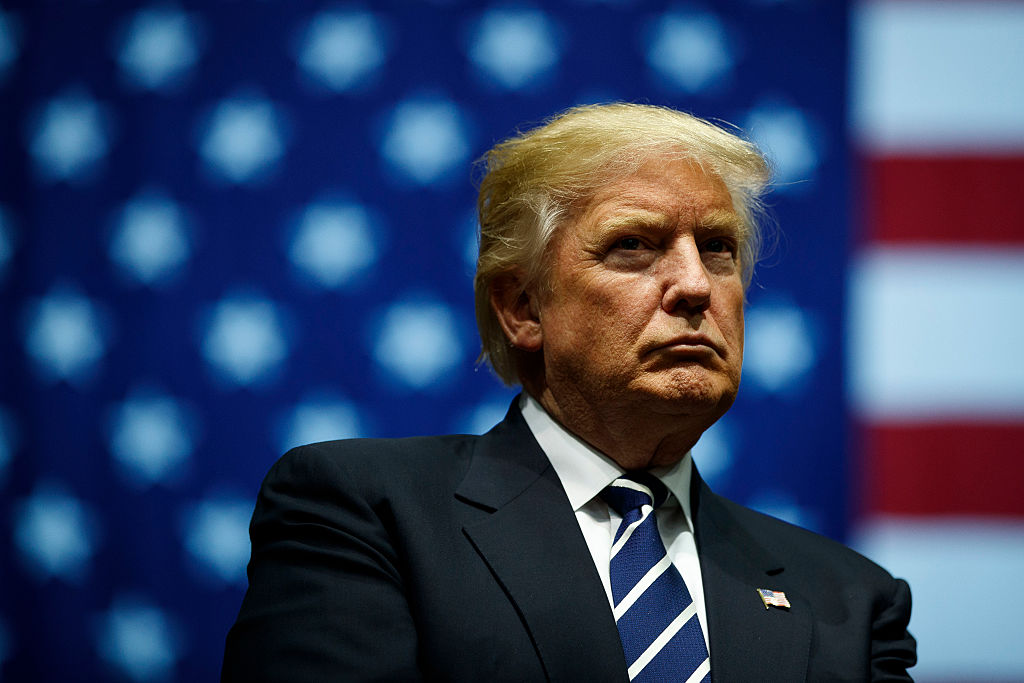
David Brog had a message for any white supremacists potentially lurking in the crowd the National Conservatism Conference in Washington, D.C. on July 14-16. After hailing the electoral victories of Brexit and Donald Trump, Brog pointed his finger towards the exit of the ballroom at the Ritz Carlton and declared, “There is the door, please leave, your ideas are not welcome here.”
It was an incongruous moment considering what the man whom Brog championed had tweeted just hours earlier, telling four female Congresswomen, all of them ethnic minorities, to “go back” to the “countries” from which they came. As former House Speaker and Trump frenemy Paul Ryan might have put it, the president’s outburst was a “textbook definition of a racist comment.”
Though Trump, and the global recrudescence of nationalism he rode to the Oval Office, was the ostensible reason for the conference, his name was seldom heard. The events of the past week illustrate why. For those hoping to ride the global nationalist wave and shift Republicans and conservatism away from the free market, free trading, and internationalist philosophies which have defined it for the past half century, the nationalist-in-chief has proven to be a massive liability.
Scrupulous avoidance of the president was hardly the confab’s only paradox. Take foreign policy. One of the keynote speakers, Fox News host Tucker Carlson, has repeatedly criticized Trump for bombing Syria and reportedly convinced the president not to strike Iran. He has called Trump’s hawkish national security advisor John Bolton a “bureaucratic tapeworm” who “seems to live forever in the bowels” of Washington. Yet the following day, said tapeworm slithered into the Ritz for his own keynote appearance, which, like Carlson’s, was well-received by the audience.
This ideological muddle isn’t unique to conservatism (witness the Democratic Party) but rather a reflection of how Trump’s 2016 election discombobulated the entire American political landscape. Conservative intellectuals who haven’t abandoned the Republican Party in disgust now face a difficult task in fashioning an ideology onto a pre-existing political movement that despises elites. Usually it’s intellectuals who influence political movements, not the other way around. Franklin Delano Roosevelt recruited teams of academics to Washington to build his New Deal liberalism. A decade later, William F. Buckley Jr.’s erudite magazine National Review birthed a conservative movement which brought Ronald Reagan to power and dominated American politics well into the 21st century. That movement consisted of three constituencies: social conservatives, free marketers, and neoconservative national security hawks.
Trump’s victory upended this coalition. When he announced his presidential candidacy four years ago, Trump approached it as a business proposition. Identifying a huge, untapped market, he offered the Republican electorate a product no one else was selling: the most extreme variety of immigration restriction, a repudiation of Reaganite economic orthodoxy, and a reassessment of America’s leading role in the world. Above all, his promises to build a wall along the southern border and harshly enforce immigration laws is what distinguished him from a pack of 16 other Republican candidates and catapulted him to the White House, and it’s what keeps his supporters loyal through near-daily scandals and moral outrages that would sink any other politician. The challenge for pro-Trump intellectuals lies in their ability to fashion a coherent political ideology around such an incoherent figure.
The primacy of national borders in the Trumpian ethos has emboldened one of the movement’s three factions – the social conservatives – to leverage that issue and thereby seek dominance over the other two. The only other group to be attacked more than neoconservatives at last week’s conference was libertarians. The conservative writer Mary Eberstadt skewered them for a “creed of ‘so what’” which has “no answer to identity politics” because of its “obsession with the atomized self.” National Conservatism, she said, requires four components – memory, humility, discernment and gravitas. (All estimable qualities, but not those which one associates with Donald Trump.) J.D. Vance, author of the bestselling book Hillbilly Elegy, complained that “conservatives have outsourced our economic policy to libertarians” and asked why neuroscientists working to create smart-phone apps earn so much more than those trying to cure brain diseases. Carlson lauded Democratic Senator and presidential candidate Elizabeth Warren’s The Two Income Trap as “one of the best books I’ve ever read about economics.”
Like many of their ideological antagonists on the socialist left, the nationalist conservatives are long on apocalyptic language about our allegedly calamitous state but short on practical solutions for alleviating it. On a panel about immigration, one speaker lamented how immigrants bring “noise” and “litter” and predicted that America was going the way of Venezuela. Yoram Hazony, the Israeli author whose 2018 book The Virtue of Nationalism inspired the conference, announced that he had “Never seen [American] cohesion as frayed as it is today.” (Born in 1964, he’s too young to remember that decade, rocked by multiple political assassinations, riots, and terrorist bombings.) Hazony lamented how conservatives “lost interest in the Bible” and credulously believed that the country “could privatize religion.” But short of amending the U.S. Constitution to explicitly enshrine “Judeo-Christian values,” much less their enforcement, how could such a supposed flaw be rectified?
“We need to love our fellow citizens,” pleaded David Brog. Like much of what I heard last week, this is a worthy appeal. But achieving the social cohesion these national conservatives claim to want will prove impossible so long as they venerate a president so keen on destroying it.
More Must-Reads from TIME
- Why Biden Dropped Out
- Ukraine’s Plan to Survive Trump
- The Rise of a New Kind of Parenting Guru
- The Chaos and Commotion of the RNC in Photos
- Why We All Have a Stake in Twisters’ Success
- 8 Eating Habits That Actually Improve Your Sleep
- Welcome to the Noah Lyles Olympics
- Get Our Paris Olympics Newsletter in Your Inbox
Contact us at letters@time.com